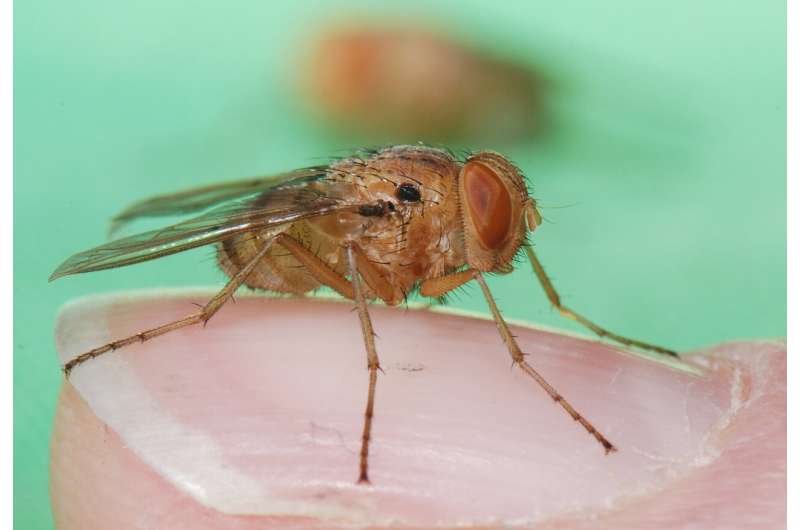Are humans preventing flies from eavesdropping?

Today's world is filled with background noise, whether it be from a roaring river or a well-trafficked highway. Elevated noise levels from both human-made and natural sources may interfere with animals' listening ability and alter how they interact with other animals. A group of researchers at California Polytechnic State University investigated how background sounds affect a parasitoid fly's eavesdropping capabilities.
Ormia flies listen for cricket calls to find their hosts for their young. When found, the flies deposit their eggs on or near the cricket. Larvae hatch and burrow inside of the cricket, eventually bursting through and killing the host. Therefore, the researchers hypothesized that noise could interfere with eavesdropping among the flies such that they have a difficult time finding their hosts.
The research was published in Royal Society Open Science, and used sticky fly traps near speakers broadcasting cricket calls across a gradient of noise. The results show that fewer parasitoid flies were caught near speakers in noisier locations. Because parasitoids end up killing their hosts, the results suggest that crickets may benefit from calling in noisy areas.
The study also found that both traffic noise and natural ocean noise inhibit fly orientation to sound, suggesting crickets could use sound as a parasite shield across different soundscapes. These results suggest that soundscapes may influence the evolution of tightly co-evolved host-parasitoid relationships.
Some questions still remain for the authors—if the parasitoid flies are less abundant in noise, might female flies have the same problem localizing male crickets calls? Author Jennifer N. Phillips stated, "Future work could investigate whether female crickets have trouble hearing and moving toward calling males in noise, which would be a fitness cost to males trying to find a mate. This could balance out the reduced risk from fly parasitism. However, if crickets are able to adjust their call or ability to find each other and the parasitoid fly does not, there may still be some benefit of noise to crickets."
More information: Jennifer N. Phillips et al. Background noise disrupts host–parasitoid interactions, Royal Society Open Science (2019). DOI: 10.1098/rsos.190867
Journal information: Royal Society Open Science
Provided by California Polytechnic State University

















